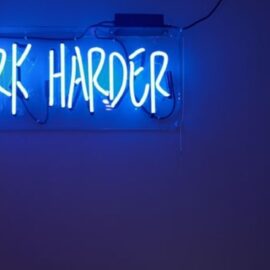

This article is an excerpt from the Shortform book guide to "Effortless" by Greg McKeown. Shortform has the world's best summaries and analyses of books you should be reading.
Like this article? Sign up for a free trial here.
Are you a perfectionist? What are the dangers of striving for perfection in everything you do?
In the absolute sense, perfection is impossible to achieve. Therefore, striving for the abstract ideal of perfection is unhealthy as it can lead to negative outcomes such as procrastination, toxic comparisons, and burnout.
Here’s how to stop being a perfectionist, according to Greg McKeown.
How to Resist Perfectionism: Embrace Mistakes
According to McKeown, perfectionism prevents progress: If you try to get everything right the first time, you accomplish very little. Instead, by simply starting a project, embracing the mistakes, and fixing them quickly, you’re much more productive. To be less demanding of yourself, do the following:
- Be kind to yourself: Instead of criticizing yourself for failures or mistakes, commend yourself for your accomplishments.
- Lower your expectations: When working on a project or task, have the courage to begin without worrying about how bad it is.
More Strategies to Avoid Perfectionism
McKeown believes the perfectionist standards we set for ourselves are unrealistic and unproductive. In The Gifts of Imperfection, Brown delves further into the dangers of perfectionism and how to combat them. She argues that perfectionism is really about controlling how others see us. We try to project a perfect image of ourselves to gain acceptance from others. But perfectionism is dangerous because it’s impossible to be or seem perfect, and to try to do so is to set yourself up for failure. Thus, like McKeown, she argues that you must have lower expectations of your own perfection—to be happy and successful, you must continue to move forward while acknowledging that you’ll make mistakes along the way.
Also like McKeown, Brown explains how to stop being a perfectionist by embracing mistakes and practicing self-compassion. She further advises coming to terms with your shame and vulnerability. You must not only embrace mistakes but also the negative feelings that come with them. A perfectionist tries to avoid things like shame and judgment, but if you accept that such feelings are unavoidable, you take away their power and control over you.

———End of Preview———
Like what you just read? Read the rest of the world's best book summary and analysis of Greg McKeown's "Effortless" at Shortform.
Here's what you'll find in our full Effortless summary:
- Why you don't need to hustle and burn out to achieve your goals
- Why the easiest path to success is the most viable
- Actionable advice for how to achieve effortless success in life






